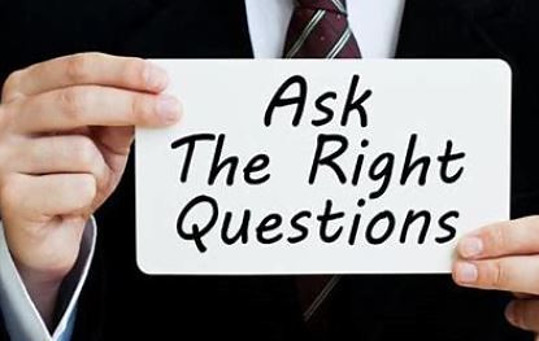You have successfully landed a job interview and have it scheduled – congratulations!
Are you prepared by preparing for a job Interview tips? Let me ask again in another way, have you REALLY prepared by not only studying up on the standard “tell me about yourself” type questions but by being able to present yourself in person as the answer to that organization’s pain points?
Do you even know what their pain points are? Have you read up on the interviewer (reading their LinkedIn profile or their bio that may be on the company’s website are two great resources), and the issues that you may face if hired?
I have you covered. In this article, I am going to provide a great winning formula on how to succeed in an interview along with a detailed discussion surrounding each point. I know there are many expert tips, and it may seem like everyone has some type of advice on how to conduct yourself in a job interview, but for us, over 50 (or older) we want to bring out the unique qualities that will set us apart from those that are much younger than us.
We DO NOT want to come across as “aged” or “behind the times”, so I want to set the record straight on exactly how one should be preparing for a job interview and provide tips and a winning formula so that you can increase your chances of getting hired by helping you to stand out from your competition.

Preparing For the Interview
Before your job interview, use your time wisely and make sure to:
Do Your Research – Knowing the company, the work environment and culture, those that will be interviewing you and any issues that you may be facing (understand what your first 90 days might look like) is all very key information. Understanding the company you are interviewing with can help you go into your interview with a great deal of confidence – which will come out in how you hold and present yourself.
Use the online resources that are available to you, like the company’s website, and look for their media or “in the news or news releases” page. Looking at their Facebook or LinkedIn pages/ profiles if they have one or other social media posts/ sites will provide you with a very solid understanding of the company’s goals. It provides you the opportunity to match your skills/ knowledge and present to them how your background makes you a great fit and a great asset.
Practice makes perfect – Study and practice your answers to commonly asked interview questions. Practice makes perfect, and you do not want to come across as someone who stumbles and mind searches for answers. Practice with a family member or friend. Have them ask you standard questions, but also let them have fun with it and have them twist the “standard/ form” questions into more challenging ones. Let them do it on the fly and add their input to them – the more surprising and challenging these questions become, the better prepared you will become.
Use the STAR method to tell stories with a clear Situation, Task, Action, and Result.
- Situation – Describe the situation and setting clearly. Tell the interviewer when and/ or where this situation occurred. Such as, “We were working on an eight-month project that had high visibility when our agency merged with another, larger company…”
- Task – Explain to the interviewer, in detail, your specific role in the situation. Such as, “My specific role was to head the IT portion for my group; I had to communicate with our subcontractors and end users to keep the project on track and moving forward.”
- Action – What did you do in the situation that helped matters? For example, “I set up weekly check-ins with management to update them on the progress of the system integration and any problems that we had to resolve. This allowed me to keep trust and show I had the situation under.”
- Result – How did your actions in this situation lead to the project’s outcome? Such as, “The team and I were able to complete the project on time, meeting all requirements from implementation to training. This experience truly was very rewarding and allowed me to navigate a lot of change orders and still succeed under pressure.”
Re-read the job description carefully – By re-reading the job description and preparing statements that will align your skills and experience to any key specific requirements of the job, will allow you to match any specific experiences in your past to any specific skill that the interviewer may be seeking.
Job interviews in the past usually were conducted in person. However, in today’s remote and virtual world, that has changed. Today, interviews are conducted in various ways such as, via phone interviews, and even more common now are video interviews.
These are now all commonplace, and you need to be prepared to face these challenges and highlight and show off your modern tech-savvy skills. If you fumble or appear uncomfortable with these new mediums, you will appear outdated and not up with the times.
If your interview is conducted in any manner other than an in-person meeting, make sure that you know the best practices and protocols for those types of interview environments.
 Interviews are a two-way street
Interviews are a two-way street
Employers want and expect you to ask questions!
They want to see you in action and thinking on the fly in real-world time.
They want to see how much time, thought and research you have invested in your time learning about the organization.
Here are some questions you should ask during ask your interviews:
(Remember, this is YOU asking THEM the questions now)
- Can you please walk me through the typical day-to-day responsibilities this job requires?
- What does a successful hire look like to you and how would you measure the success factors for someone in this role?
- What departments or individuals do I (or my team) work with regularly?
- Are there any challenges or struggles between these teams or departments?
- What are the challenges you are currently up against in your role? What are your pain points? How can this person help you in your role?
- What is your vision for a successful first 30, 60, or 90 days?
The interviewer is going to expect you to ask relevant engaging questions. DO NOT read from a script, be prepared and do your homework and be able to ask these questions as if you are interviewing them – because you are!
Day of the Interview
Get plenty of rest and go to sleep early. You want to be fully engaged mentally, and a good night’s sleep will help greatly. Eat a healthy well-rounded breakfast that will provide you energy. Try to avoid carbs and stick with healthy choices.
Also, be sure to:
- Plan your interview attire the night before and get a friend’s or spouse’s input. You do not want to waste time fumbling around wasting valuable time and creating any mental frustration for a blouse or tie that needs pressing at the last minute, or you forgot to get your suit out of the dry cleaners the night before.
- Bring copies of your resume (or samples of your work if it is required for this interview), DO NOT assume that the interviewer will be prepared to have copies. Also, bring a notebook and a pen to take notes.
- Plan to arrive at AT LEAST 10–15 minutes early – Map out you are the best route to the interview and make sure to plan for any traffic or construction so you can be sure to arrive on time. Have several alternate routes planned as a backup plan if there are delays or unforeseen issues (even if you are going to use mass transit).
- While waiting observe the people, the work environment, and get excited to work there, use the extra minutes to observe workplace dynamics.
- Treat EVERYONE you interact with, with a high level of respect and politeness. This includes the parking attendant, the receptionist, or the cleaning staff.
- Make sure you are using proper and respectful body language. Smile, offer a firm handshake, and repeat the names of those that are interviewing you to show you are attentive and are paying attention.
- Win them over with authenticity and a positive attitude. Be during the interview and use upbeat body language.
- Do not speak negatively about previous employers. Companies want people who are problem solvers and can overcome tough situations, not people who live in negativity.
Keep your answers specific and on target, and focused, while it is okay to embellish a bit, DO NOT lie (that will come out to be a major issue), or come across as high on your horse by bragging and talking others down. Your interviewer will pick up on that as a weakness and will frown on anyone who needs to bring down any past colleagues or organizations to make them look better.
Be prepared to meet multiple interviewers. It happens more today than it has in the past, so use your time with each interviewer wisely and be mindful of rambling.
Practicing your answers beforehand will keep you focused and on top of your game.

After The Interview
When the interview is over, take a DEEP breath and give yourself the best chances of moving forward by doing these after the interview tasks:
- Before you leave ask if there is ANYTHING further that they would need from you to make a decision, and ask them what the next steps would be, and what the time frame for them to make a decision would be for that decision.
- Send a thank you letter as soon as you can.
- Get all the business cards of each person you interviewed so that you can send them each individually written using separate thank you emails.
- Ensure that each email is distinct from the others, using the notes you took during the conversations so that you can make direct connections.
Decisions about candidates many times are often made quickly, so it is important to send your follow-up email immediately, on the same day if possible. You want your interviewers to remember you and doing the above can help make a good impression.
Conclusion
Make sure you are talking about results and positive outcomes during your interview. Focus on how you can help them produce immediate results – and NOT how well your grandson did at baseball practice.
Some older job seekers may shy away from talking about their many successes through a long career, but this is something that you need to take advantage of – it is something that your younger competition cannot compete with, as they have not yet had your life experiences.
Best of luck – and let me know how it goes, and if you have any questions that I can help you with below.

This article is just what I was looking for! I have been out of the job searching market for so long that now that I am in the market again it seems to have completely changed. I feel more confident after reading your tips and your winning formula for me to land my next career job! Thanks again!
Hi Daniel…
I am so glad that you feel that this article was both helpful to you and informative. If you don’t mind, you mention that you are back in the job search market after a long while. Yes, you are right, things have changed so much thanks to technology and COVID — Is there anything in particular that I could help you with or any questions that you may have?
-Mike